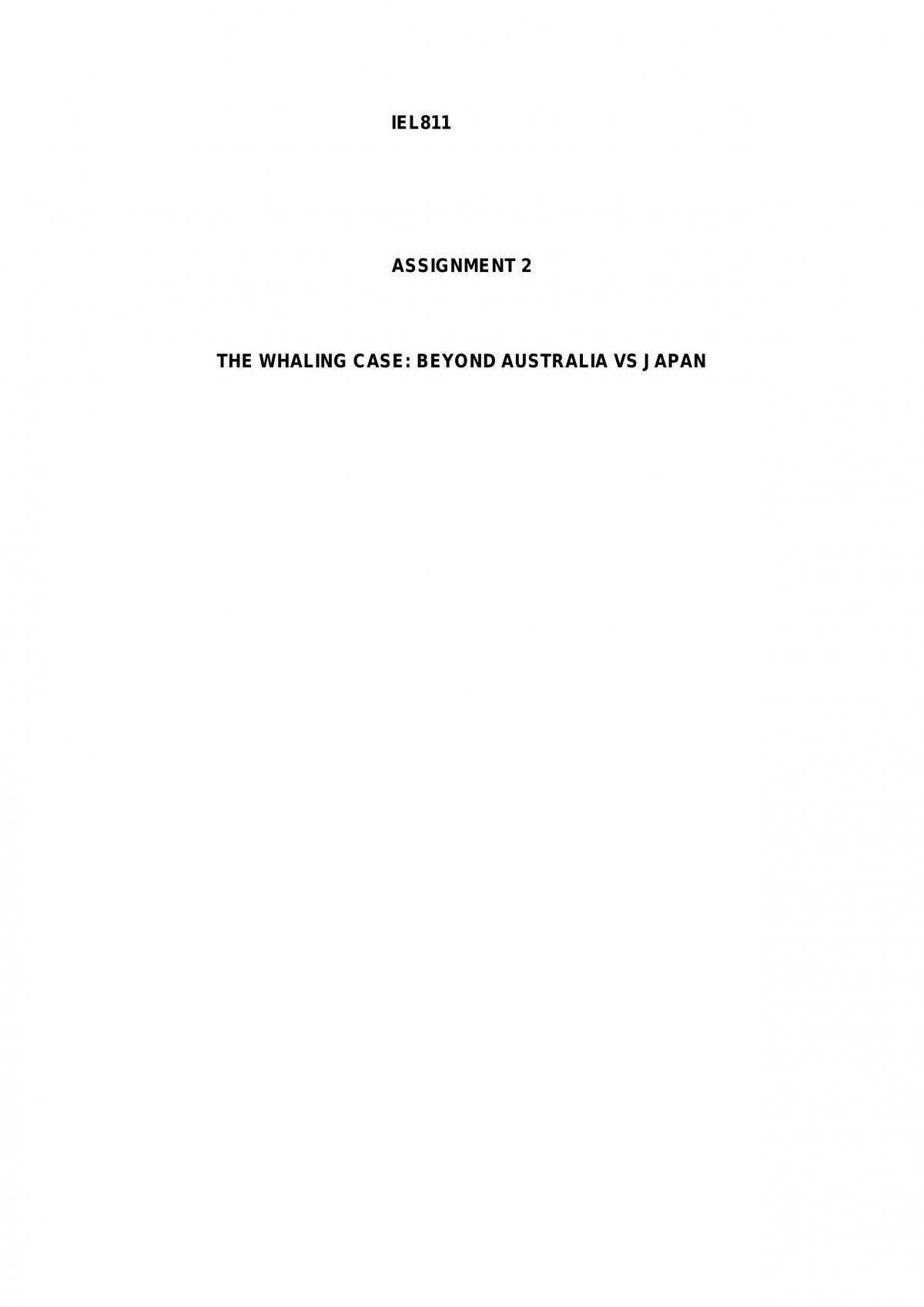Find
Search for over 200,000 study notes and past assignments!
Swap
Download study resources by swapping your own or buying Exchange Credits.
Study
Study from your library anywhere, anytime.
THE Whaling Case: Beyond Australia Vs Japan
LAWS 4007 - International Environmental Law
2 Found helpful • 18 Pages • Essays / Projects • Year: Pre-2021
In May 2010 Australia initiated proceedings in the International Court of Justice (ICJ) against the State of Japan. The Court found that it had jurisdiction over the dispute on the basis of Japan and Australia’s declaration of acceptance under Article 36, paragraph 2 of the Courts Statute. Under Article 36, both Australia and Japan have recognized the “jurisdiction of the Court in all legal disputes concerning: (a) the interpretation of a treaty; (b) any question of international law; [and] (c) the existence of any fact which, if established, would constitute a breach of international obligation.” Japan contested the Courts jurisdiction arguing that it fell within the reservation (b) of Australia’s declaration which excludes from the Court’s jurisdiction any disputed arising out of, concerning, or relating to exploitation of maritime zones. The Court concluded that Australia’s reservation (b) intended only to address maritime boundary delimitations and since there was no overlapping maritime claim between Australia and Japan, reservation (b) was not applicable. The Court reminded Japan that the maritime zones had no relevance in this dispute which was about whether or not Japan’s Whaling programmes in the Southern Ocean were consistent with International Convention for the Regulation of Whaling (ICRW) and accordingly international law.
This document is 10 Exchange Credits
More about this document:
|
|
This document has been hand checkedEvery document on Thinkswap has been carefully hand checked to make sure it's correctly described and categorised. No more browsing through piles of irrelevant study resources. |
|
|
This is an Essay / ProjectEssays / Projects are typically greater than 5 pages in length and are assessments that have been previously submitted by a student for academic grading. |
|
|
What are Exchange Credits?Exchange Credits represent the worth of each document on Thinkswap. In exchange for uploading documents you will receive Exchange Credits. These credits can then be used to download other documents for free. |
|
|
Satisfaction GuaranteeWe want you to be satisfied with your learning, that’s why all documents on Thinkswap are covered by our Satisfaction Guarantee. If a document is not of an acceptable quality or the document was incorrectly described or categorised, we will provide a full refund of Exchange Credits so that you can get another document. For more information please read Thinkswap's Satisfaction Guarantee. |

Studying with Academic Integrity
Studying from past student work is an amazing way to learn and research, however you must always act with academic integrity.
This document is the prior work of another student. Thinkswap has partnered with Turnitin to ensure students cannot copy directly from our resources. Understand how to responsibly use this work by visiting ‘Using Thinkswap resources correctly’.
Browse WSU Subjects


